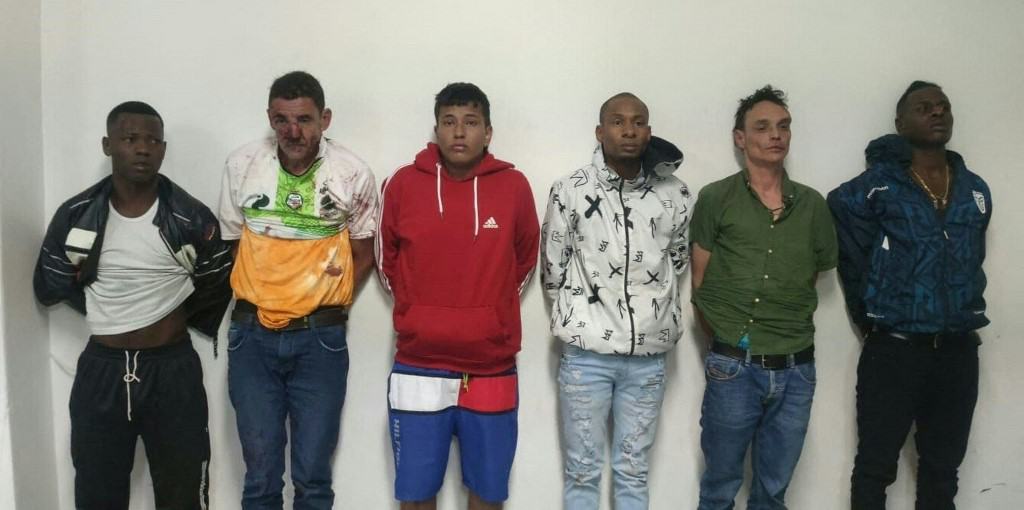The six arrested for the murder of Ecuadorian presidential candidate Fernando Villavicencio, second in voting intention for the general elections of August 20, are Colombian, reported the police of this country plagued by drug trafficking violence.
An alleged attacker who died after a gunfight with security agents of the former journalist is of the same nationality.
“All, including the deceased, are Colombians,” said the police when asked. Previously, Interior Minister Juan Zapata had only told the press that the detainees were foreigners.
Following the crime, Ecuador declared a state of emergency for 60 days and announced it would receive FBI assistance to investigate the matter.
“I have requested support from the FBI for the investigation,” said President Guillermo Lasso on the social network X (formerly Twitter), adding that “in the coming hours a delegation will arrive in the country.”
The state of emergency allows military patrols on the streets and seeks to ensure the development of the elections.
Villavicencio, 59, a centrist who uncovered several corruption cases, was shot dead on Wednesday as he left a sports center in the northern part of the capital after a rally.
He had reported threats against him and his campaign team last week from the detained leader of the group Los Choneros, linked to the Mexican Sinaloa cartel.
Postpone the debate
Villavicencio’s campaign director, Antonio López, proposed postponing this Sunday’s presidential debate.
“The debate should be postponed so that when we decide” the replacement, he “has almost similar conditions to debate” with the other seven presidential candidates, he said at a press conference.
Lasso blamed the attack on members of “organized crime” and warned that “they will face the full weight of the law.”
The candidate of the Construye and Gente Buena movements was one of the eight presidential candidates for the early elections in Ecuador, a country that for decades was a haven of peace in South America but began to change a few years ago due to ties with Mexican and Colombian cartels.
The annual homicide rate almost doubled in 2022 to 25 homicides per 100,000 inhabitants. Prison massacres have left more than 430 inmates dead since 2021.
Wednesday’s attack also left nine injured, including a candidate for the assembly and three police officers, according to the latest official count.
At the murder site, a bouquet of white roses and a sign with a legend was left: “Damn NARCOPOLITICS will pay. Forever Fernando I.L.Y.” (I Love You).
“We are in mourning, (Villavicencio) was a beacon of hope of honesty for our country, a candidate who denounced all the corruption of narcopolitics,” said Ruth Flores, a 65-year-old housewife.
“This is a political crime that takes on a terrorist character, and we have no doubt that this murder is an attempt to sabotage the electoral process,” added Lasso, who declared three days of mourning.
El Universo newspaper, the country’s main one, reported that Villavicencio was murdered “mafia-style with three shots to the head.” The police detonated an explosive device found at the attack site.
Serious threat
The Construye movement demanded the creation of an international commission to investigate the murder on Thursday. “We will not allow narcopolitics to triumph and mock justice once again,” they said in a statement.
Villavicencio, a former member of the National Assembly dissolved by Lasso in May to make way for early elections, was second in voting intention with 13.2%, behind lawyer Luisa González (26.6%), close to former socialist president Rafael Correa (2007-2017), according to the latest poll released by Cedatos.
The United States, Venezuela, Spain, Chile, the UN, the European Union, and the OAS observer mission condemned the crime.
“These criminal bands of hitmen carry this Colombian model, sadly, of political assassinations, of hitmen, beyond the borders. How much they have made Colombia suffer with the hitman model of the paramilitaries, of the parapolitics!” said Venezuelan president Nicolas Maduro in an official act.
Luisa González and other presidential candidates like Yaku Pérez (leftist indigenous leader, third with 12.5%) and Otto Sonnenholzner (former right-wing vice president, fourth with 7.5%) suspended their campaigns and deplored the murder.
As a journalist, Villavicencio – a staunch opponent of Correa’s government – unveiled a corruption scheme for which Correa, who has lived in Belgium since 2017, was sentenced in absentia to eight years in prison.
He then served as president of the legislative oversight committee, where he continued to denounce corruption cases.
A candidate for deputy was also murdered during this election campaign, as well as two mayoral candidates before the local elections in February.






